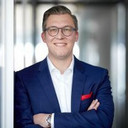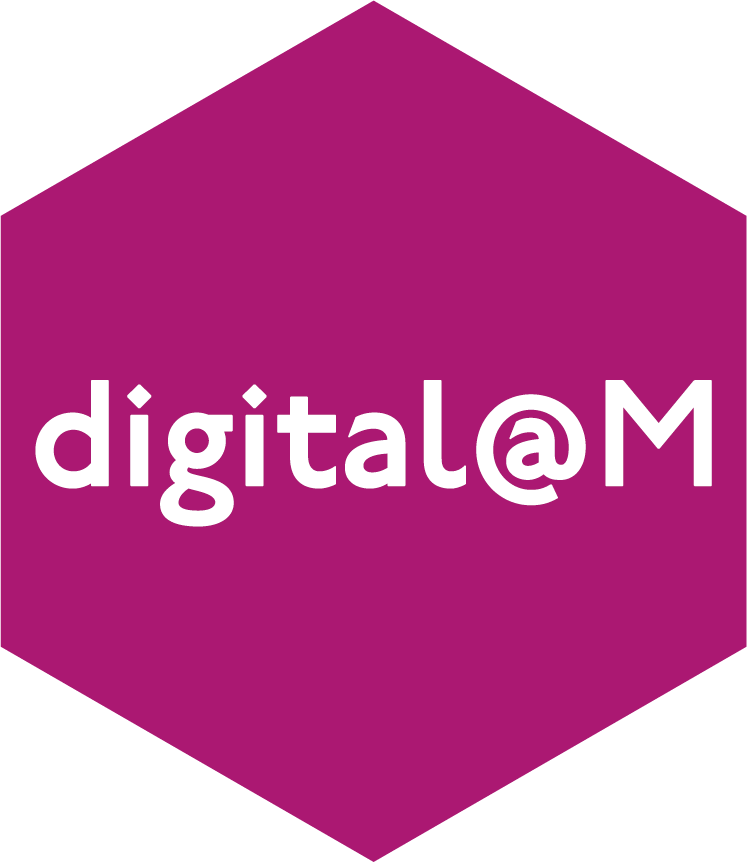Diversity in the Internet Industry: How to Crack the Glass Ceiling
Peter Janze, Managing Director of digital@M GmbH on the importance of harnessing diversity in the Internet industry – and how setting ambitious targets is essential in order to achieve this.

© Julia Garan | istockphoto.com
There are any number of good reasons as to why the Internet industry needs female reinforcement. Numerous fields in the branch are up against a shortage of skilled workers. What’s more, homogeneous teams and uniform ways of thinking represent a clear obstacle to innovation. The digital industry is booming, new digital business models are being created each and every day, and lucrative jobs are being created – but all too often, women are still missing out. The eco Association wants to change that. As part of its topic field “Women in Tech”, eco invites inspiring female specialists and executives from the Internet industry to take the floor in a series of interviews. But we can only achieve gender diversity together with great male managers and colleagues. In this issue, Peter Janze, Managing Director of digital@MGmbH, is another HeforShe hero taking part in our interview series. This interview was first published on eco.de in the German language on 12 December 2020.
Hanna von der Au: You’re the Managing Director of digital@M GmbH, a 100% subsidiary of the City of Munich, and there you’re driving forward the digitalization of the city and the public administration. Before that, you worked as CIO and CDO in various companies and supported the digital transformation of business models. Anyone who has seen you on a panel or who has taken a look at your social media accounts knows that, for you, diversity is clearly not lip service. You have a 55 per cent female quota at digital@M. Can you tell us why the topic of diversity is important to you?
Peter Janze: With technology advancing at an increasingly faster pace, business models are being transformed at the same tempo. It is becoming more and more important to adapt technologies quickly and to drive innovations forward in order to ensure the business success of a company. But ethical issues, e.g. in the training of machine intelligence, are also coming more and more to the fore. To keep on top of this increasing complexity, diverse teams are needed that bring different perspectives into the discussion and into the search for solutions. For me, however, diversity goes even further: aspects such as age, education, or culture are also crucial to consider. Personally, shedding light on complex problems as part of a diverse team gives me immense pleasure, so I can only recommend seeking out this experience.
Von der Au: If I were applying for your job, what could I expect on a typical working day? And what would be the essentials that I’d need for the job?
Janze: digital@M is dedicated to the digitalization of the state capital of Munich, so our work doesn’t just have an impact on the public administration; all of the city’s citizens stand to benefit. In addition to a passion for new technologies, it is essential to enjoy working with people – empathy, understanding, and intuition. The modernization of the administration can only succeed if we work together as a team.
Von der Au: To quote the American sociologist Michael Kimmel: “We cannot fully empower women and girls without also engaging men and boys, and when we do, we find out that gender equality is a good thing for men as well as women.” In your view, how can we persuade those whose circumstances make them privileged members of the corporate world to think differently?
Janze: From my point of view, dealing with the topic of “unconscious bias” helps. This is best done in a group, because the whole discussion is part of what it’s all about.
Nevertheless, it’s in the nature of organizations to want to keep established conditions stable. A change in thinking only occurs when positive experiences are gained. It is therefore crucial that diversity is anchored in the corporate strategy and exemplified so that it becomes part of the corporate culture.
Von der Au: The proportion of women at your company is 55 percent and, when it comes to management positions, as high as 65 percent. What is it that you do differently in recruiting at digital@M? And what advice do you have for companies that would like to generate more applications from women?
Janze: I can only offer tips from our collective experience: We communicate to the outside world that diversity is important in our company and that we are taking this seriously. Even the job advertisement title says a lot: Why is “m/f/i” (male/female/intersex) used and not “i/m/f” or “f/m/i”? What’s also essential is the use of gender-appropriate language as well as material which is free of stereotypes and which portrays a company’s own image. Of course, the content of the job ad itself also plays a role. When it comes to an initial meet-up or interview, this always takes place with equal representation. We also attach great importance to applicants getting to know the team and the culture.
I see role models as helpful: For example, our female colleagues give talks and make an important contribution to raising awareness. Companies should therefore offer this type of opportunity.
Von der Au: These are great inspirational ideas and suggestions for a company for strengthening diversity in the area of gender. But recruiting is only the first step. What type of measures are needed in order to retain women in the long term and bring them into management positions?
Janze: I’d naturally like to retain all employees in the long term. At this point, we need to talk about how workplace and hierarchy models are taking hold. Too often, we experience “business theater”, which increases levels of frustration. The goal must be to focus on meaningful work with customers. This also means moving away from mere attendance time as a career criterion: technologies that are already available today offer much better possibilities for reconciling family and career, given that whether one works remotely or part-time is becoming less and less important. And of course, working part-time should no longer mean the end of a career.
So how do you get women into management positions? Simply do it. With men, people often say “I think he can do it”, whereas women have to prove themselves. It’s not so easy to break through these thought patterns if you’re not even aware that they exist.
Von der Au: Another instrument for promoting diversity at executive levels is the women's quota. The German Minister for Family Affairs, Franziska Giffey (SPD), recently presented a draft law for a women’s quota on the boards of Germany’s large listed companies with more than 2,000 employees. What do you think of quotas?
Janze: Only with ambitious targets do you start to drive change. I am therefore in favor of a 50% quota. I myself have unfortunately had to observe how top female performers with fresh ideas couldn’t prevail against established networks and ways of thinking, and how the proverbial “glass ceiling” is preventing diversity. I am also firmly convinced that, with a relevant proportion of women in management, the general proportion of women in the company increases.
Von der Au: We’ve now looked at a lot at things on the part of the company. However, that would be too one-sided. So let’s look at things from the other side as well. From your many years of experience as a manager, what can women do better?
Janze: Unfortunately, women are often led to believe that they need to change: sayings such as “Speak in a deeper voice” or “Wear a trouser suit instead of a dress” should be locked away in a drawer, because conformity prevents diversity. It’s therefore important to become aware of one’s own strengths, to work on them or to further strengthen them, and to become visible on the basis of these strengths.
Von der Au: Do you yourself have, or have you had, role models who have inspired and/or encouraged you?
Janze: I don’t have a clear role model, because I’m of the view that it’s not good to imitate a person. In the end, you are still you. But of course there are many inspiring people in my professional as well as private environment from whom I learn.
Von der Au: There’s no doubt but that you’re also a role model for other managers: What three qualities do you think a good manager should have?
Janze: In my view, the following are important as basic standards: reflectiveness, transparency, and promotion. You should question your own actions and reflect on their impact. Here active exchange with a person’s own team, but also with other people, is helpful. Transparency and openness mean that decisions can be understood – this is particularly important when it comes to uncomfortable matters. And promotion means placing the achievements of the team or those involved in the achievement in the foreground. Believe in your employees and strengthen them in what they do.
Von der Au: We’ll now give you another interesting job and make you editor-in-chief of a leading media publication – let’s say, the German “Die Zeit” or “FAZ” newspapers, or the international “Guardian”: Which headline would you like to see in a lead article concerning “Diversity/Women in the Tech Branch”? And what should the article say?
Janze: An exciting job! The headline reads “Companies opt for parity-based dual leadership.” The first trial runs in this direction have already been taken.
Von der Au: We’d also like to bring your thoughts and questions into the diversity debate. Is there an issue that, in your view, receives too little attention, or a topic that’s close to your heart? In this context, what question would you like to share with us for a follow-on interview partner?
Janze: In my opinion, parity-based dual leadership is an interesting way to lead companies into the future and also to centrally anchor the concept of diversity within a company. How can you bring this model to fruition?
Von der Au: Finally, here’s a tough question that Deepa-Gautam Nigge from SAP gave us for you. Companies have recognized the importance of diversity. We know we have to promote diversity in all its dimensions. The societal need for it is also more than evident in all areas. If we create the right structures, not only women will benefit, but as a result, so too will other disadvantaged groups. Despite this realization, unconscious bias is entrenching a break-off point when it comes to women rising up the hierarchy, particularly at middle-management level. How can we systematically establish an inclusive culture so that women can continue to assert themselves in the medium term and develop their potential in a targeted manner?
Janze: As Deepa-Gautam Nigge said, diversity is not a one-dimensional issue. Everyone benefits from an inclusive culture – at best, not just people who fall through the cracks. Addressing unconscious bias is an important point: each of us has biases in our minds. They just need to be constantly challenged. If I use gender-appropriate language in a dialogue, that’s a first step. Diversity and inclusion must be exemplified at all levels. Middle management is often referred to as the “glass ceiling”. That’s why diversity and inclusion must be actively promoted within corporate management.
Peter Janze is Managing Director of digital@M GmbH, a 100% subsidiary of the City of Munich. With his team, he has set himself the goal of significantly supporting and advancing the digitization of the city in its many facets. He sees the modernization of the Public Sector as an opportunity to use new technologies in a way that focuses on the needs of citizens. In his previous position, Peter Janze was CIO and CDO, where he supported the digitization and transformation of business models. With the project “Digital Workplace”, he was voted into the top 5 at the “CIO of the Year” in 2018.
Hanna von der AU is PR Manager at eco – Association of the Internet Industry. She is responsible for the development of communication strategies and concepts, content marketing activities, social media channels, and press releases. The topics closest to Hanna’s heart are diversity and Women in Tech. She leads the activities around eco’s German #LiT – Ladies in Tech initiative and loves getting in touch with more women in the industry. Her aim is to make the Internet industry more colorful and diverse. Before joining eco in 2019, Hanna worked as a digital campaign consultant with a focus on content generation at a digital consultation agency (for customers like NRW.INVEST, GS1 Germany, Peek & Cloppenburg, Coop, Lufthansa).
Further information on the topic of diversity can be found on eco's Diversity focus page and in the eco Association 2020 study on Women in Tech Across the Globe: A Good Practice Guide for Companies.
Please note: The opinions expressed in Industry Insights published by dotmagazine are the interviewee’s own and do not reflect the view of the publisher, eco – Association of the Internet Industry.







